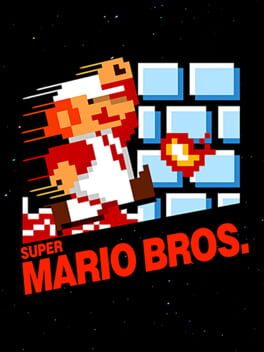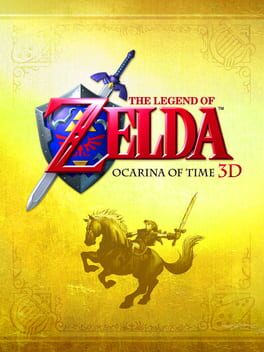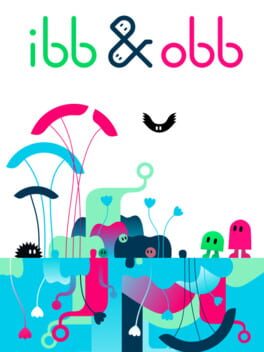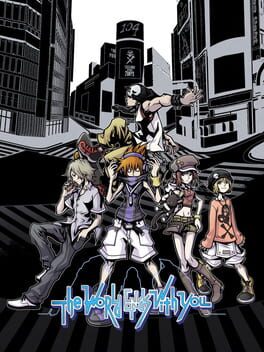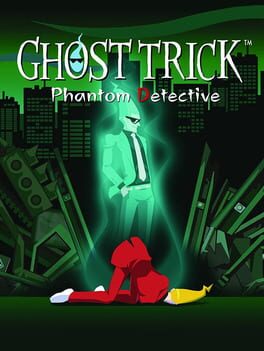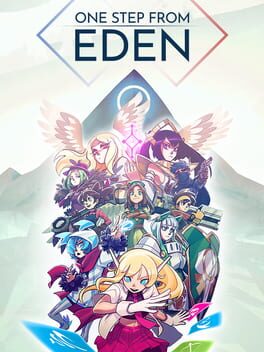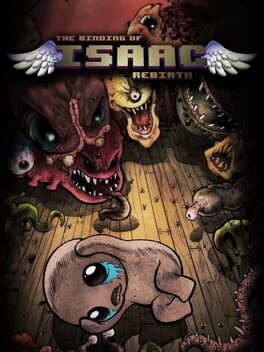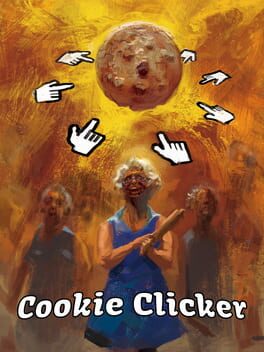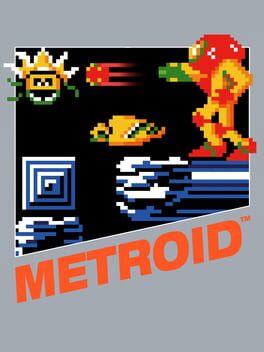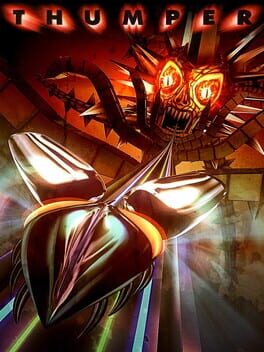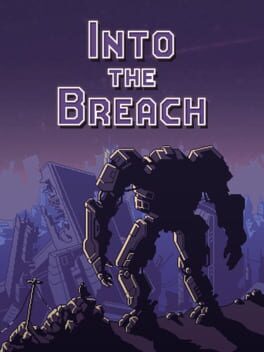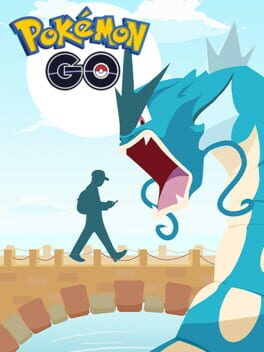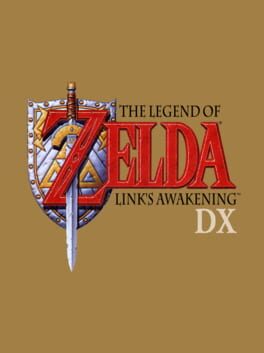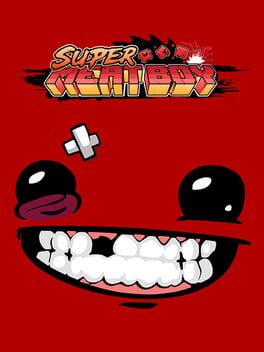AutumnLily
1985
I have a lot of nostalgia in regards to this game from playing the Game Boy Color port endlessly when I was in my early teens. Returning to Super Mario Bros. all these years later is a little disappointing though. It has really not aged well, from overly slippery movement and a general feeling of lack of control, to moments of frustrating design (the hammer bros and 7-4 were particular low-points for me here), and the way this all cascades into a collection of cheap deaths. If not for save states I couldn't imagine ever having the patience to complete this game nowadays.
I respect what Super Mario Bros. did for gaming, and am thankful for all the wonderful times it gave me in my youth, so many hours scouring the game's secrets, but am also very thankful that gaming has outgrown its roots so greatly.
I respect what Super Mario Bros. did for gaming, and am thankful for all the wonderful times it gave me in my youth, so many hours scouring the game's secrets, but am also very thankful that gaming has outgrown its roots so greatly.
The big thing the Zelda series seems to have taken from Link's Awakening was that the story it presents needs to have emotional resonance. For me that makes a world of difference between A Link to the Past, which is a standard save the world plot with fairly silly and superfluous attempts at lore, and Ocarina of Time, which is a standard save the world plot with fairly silly and superfluous attempts at lore but also characters you create emotional connections with, places you care about, and themes of coming of age and growing into the role required of you that strike just as well for me at 29 years old as they did at 12. This resonance makes it so much easier for me to forgive Ocarina of Time's blemishes and less well-aged aspects than with A Link to the Past.
And there are certainly blemishes, even with the remaster working hard to make the game still play well. A large chunk of the game, from the Ice Palace through to the Water Temple and then finally the Thieves' Hideout, is frustrating enough that it actually ended my previous playthrough of the game a few years ago. There's also not nearly enough guidance provided on where to locate some progression-critical items (notably the Lens of Truth and Din's Fire) which can force people unfamiliar with the game, and unfortunate enough to not stumble across said items, to turn to a walkthrough.
There's also some wonderful stuff here though, too. The Forest Temple is an all-time great Zelda dungeon, I love all the non-Water adult-dungeons in some way, and the Bottom of the Well provides some genuinely chilling moments of horror. The Lens of Truth is one of my favourite items in the series, amazing for how it makes the world around feel bigger and more mysterious, the game is great at keeping its pool of items largely relevant right up until the very end, and the encounters with Shiek are particularly lovely. Even Hyrule Field, which nowadays feels much smaller and more empty than it did when I was a teenager, still makes you feel something as you step out there for the first time as Young Link, a grand adventure beckoning you onwards.
And there are certainly blemishes, even with the remaster working hard to make the game still play well. A large chunk of the game, from the Ice Palace through to the Water Temple and then finally the Thieves' Hideout, is frustrating enough that it actually ended my previous playthrough of the game a few years ago. There's also not nearly enough guidance provided on where to locate some progression-critical items (notably the Lens of Truth and Din's Fire) which can force people unfamiliar with the game, and unfortunate enough to not stumble across said items, to turn to a walkthrough.
There's also some wonderful stuff here though, too. The Forest Temple is an all-time great Zelda dungeon, I love all the non-Water adult-dungeons in some way, and the Bottom of the Well provides some genuinely chilling moments of horror. The Lens of Truth is one of my favourite items in the series, amazing for how it makes the world around feel bigger and more mysterious, the game is great at keeping its pool of items largely relevant right up until the very end, and the encounters with Shiek are particularly lovely. Even Hyrule Field, which nowadays feels much smaller and more empty than it did when I was a teenager, still makes you feel something as you step out there for the first time as Young Link, a grand adventure beckoning you onwards.
2013
I wish I'd enjoyed this more. The soundtrack is just a constant stream of bops, the concept and the worldbuilding surrounding it are engaging and enjoyable, and I found myself investing in the characters, even the initially irritating Neku eventually; the writing has Big Teenage Angst energy and all the corniness that comes with that, but also comes across as sincere in its beliefs in a way that left me going along with it regardless.
The problem is I didn't really get on with the gameplay. The battle system was the biggest offender here, where it felt like the only way that button mashing for the top screen whilst focusing exclusively on the bottom screen wouldn't be the best way for me to approach things would be if I put in a huge amount of practice and became actively good at managing both screens at once; something I'm not sure I'm even capable of. Meanwhile the bottom screen gameplay grew repetitive a fair while before the end of the game to the point that I started to dread being forced into yet another fight.
Even beyond this the map is almost useless, and the city blends together enough that I didn't really have a good sense of my bearings until over halfway through the game. Some of the reaper gates descend into repetitive busywork that feels like it's just artificially padding out the game. The systems that exist in the game with myriad pins, clothes, food and a trends system associated with all this felt excessively lavish at points. Some boss battles were deeply frustrating mechanically. The difficulty curve feels more like a rollercoaster such that fights would oscillate between trivially easy and offputtingly difficult and then back again.
This comes across as more negative than I'd like to. I love the game's style, which it exudes at every moment, and likewise found a lot of enjoyment in the depth of its imagination. Gosh did I find it disengaging at points though, sadly.
The problem is I didn't really get on with the gameplay. The battle system was the biggest offender here, where it felt like the only way that button mashing for the top screen whilst focusing exclusively on the bottom screen wouldn't be the best way for me to approach things would be if I put in a huge amount of practice and became actively good at managing both screens at once; something I'm not sure I'm even capable of. Meanwhile the bottom screen gameplay grew repetitive a fair while before the end of the game to the point that I started to dread being forced into yet another fight.
Even beyond this the map is almost useless, and the city blends together enough that I didn't really have a good sense of my bearings until over halfway through the game. Some of the reaper gates descend into repetitive busywork that feels like it's just artificially padding out the game. The systems that exist in the game with myriad pins, clothes, food and a trends system associated with all this felt excessively lavish at points. Some boss battles were deeply frustrating mechanically. The difficulty curve feels more like a rollercoaster such that fights would oscillate between trivially easy and offputtingly difficult and then back again.
This comes across as more negative than I'd like to. I love the game's style, which it exudes at every moment, and likewise found a lot of enjoyment in the depth of its imagination. Gosh did I find it disengaging at points though, sadly.
A great example of a story that can only be told via a video game; the way the plot moves and develops is so interconnected with the game's mechanics that it's hard to imagine this really existing in any other form, and that in itself is already enough to make the game worth experiencing.
I love the characters, humour, and the way the animations compliment both of these aspects so well. The story itself is largely enjoyable and very engaging, though so relentlessly full of twists and turns, and constantly asking you to suspend your disbelief even further, that I never really gained my footing for long enough to form much of an emotional connection with what was happening.
The actual puzzles in the game are generally pretty easy, especially with the game's habit of pushing hints on to you, and sometimes they struggle to elevate far beyond "interact with everything you can see", but the way they're so deeply integrated with the story, and the manner in which the game uses them to express its humour, is so satisfying that I largely think of them fondly anyways.
Also; Missile is really good.
I love the characters, humour, and the way the animations compliment both of these aspects so well. The story itself is largely enjoyable and very engaging, though so relentlessly full of twists and turns, and constantly asking you to suspend your disbelief even further, that I never really gained my footing for long enough to form much of an emotional connection with what was happening.
The actual puzzles in the game are generally pretty easy, especially with the game's habit of pushing hints on to you, and sometimes they struggle to elevate far beyond "interact with everything you can see", but the way they're so deeply integrated with the story, and the manner in which the game uses them to express its humour, is so satisfying that I largely think of them fondly anyways.
Also; Missile is really good.
2020
The learning curve for this game is incredibly steep and the game does very little to help you in that regard, and there's just generally a bunch of stuff that needs to be explained more clearly in-game. I enjoyed this a bit more than this score indicates in part due to having someone explain mechanics of the game to me in my early runs, but imagine I would have been pretty frustrated at points were I tackling this game on my own.
The gameplay itself is intense, challenging and punishing, but once you get into the flow of it it can be quite rewarding and exciting, the boss fights serving as highlights. That said I don't love some aspects of the deckbuilding (the motivation to take extremely few of the rewards you're presented with so you can maintain a stream-lined deck is fairly feel-bad, the requirement to build towards some scripted hyper-efficient archetype is frustrating for various reasons).
My motivation to play the game plummeted once I found the various endings, and the endings themselves tended to feel very anticlimactic due to the threadbare story.
The gameplay itself is intense, challenging and punishing, but once you get into the flow of it it can be quite rewarding and exciting, the boss fights serving as highlights. That said I don't love some aspects of the deckbuilding (the motivation to take extremely few of the rewards you're presented with so you can maintain a stream-lined deck is fairly feel-bad, the requirement to build towards some scripted hyper-efficient archetype is frustrating for various reasons).
My motivation to play the game plummeted once I found the various endings, and the endings themselves tended to feel very anticlimactic due to the threadbare story.
Strongly dislike how the game just expects you to memorise the effects of its myriad items when these effects can vary wildly from incredibly powerful to run-endingly detrimental, and it's hard to parse what some effects even do in the first place. Also dislike how some builds feel near-unbeatable, whilst others are useless, and that it feels like such rng as to which you'll end up with.
I get that this was a key player in the roguelite genre becoming popular, but it has been significantly outperformed by later entries.
I get that this was a key player in the roguelite genre becoming popular, but it has been significantly outperformed by later entries.
2013
The clicker genre is one that reduces games to the worst parts of modern game design, turning them into addictive, manipulative Skinner boxes. Whilst I don't think it's impossible for entries in the genre to transcend this in some manner, I have such a dislike for and distrust of the mechanisms that sit at the core of these games that I think it would be safest to avoid the genre altogether.
Cookie Clicker, as the most well-known example of this, becomes the poster-child for this.
Cookie Clicker, as the most well-known example of this, becomes the poster-child for this.
1986
The lack of a map, in a world where every corridor looks identical and extends eternally, would probably be enough of a killer on its own. The frequent horrible lag, how restricted your shooting capabilities are, and the seeming expectation for you to just tank essentially unavoidable damage, all just made things worse.
Very quickly decided I want to do anything else with my time. Clearly remarkable for its time, extremely influential, but also just kind of bad.
Very quickly decided I want to do anything else with my time. Clearly remarkable for its time, extremely influential, but also just kind of bad.
2016
Thumper's moniker of "rhythm violence game" fits really well; I can't remember the last time I played a game that is quite so violent towards its players. A barrage of lights and sound, hurtling obstacles towards you only to then hurl you around even as you successfully navigate them. The game really makes you feel what's happening every moment of the way; it is exhilarating, exhausting and intensely visceral.
Thumper gets very difficult as it proceeds, which I can imagine putting off a number of people who are otherwise very into the aesthetic. Personally I found the increasingly harsh difficulty perfectly suited the game's feeling of being a descent into some hellish void, and the way the game pushed me to tackle increasingly harder and harder patterns leads to beating those final levels feeling very rewarding. The things the game trains you to eventually be capable of are kind of absurd.
I would like to try this out in VR some day.
Thumper gets very difficult as it proceeds, which I can imagine putting off a number of people who are otherwise very into the aesthetic. Personally I found the increasingly harsh difficulty perfectly suited the game's feeling of being a descent into some hellish void, and the way the game pushed me to tackle increasingly harder and harder patterns leads to beating those final levels feeling very rewarding. The things the game trains you to eventually be capable of are kind of absurd.
I would like to try this out in VR some day.
2018
2016
Whilst on a technical level this is obviously a step backwards from A Link to the Past (with a bunch of awkward consequences of these technical limitations), and there's certainly a bit too much compulsory backtracking for my taste, this game pushes forward Zelda on multiple levels that lead to it being a more rewarding experience for me than the earlier entries in the series.
Most notably this game made me actually care about its characters and world, something none of the Zelda games released prior to it could accomplish. Whilst the story here is simple it is fairly emotionally compelling for what it is (Marin seemingly trying to wake up the Wind Fish in particular is a fascinating moment), the world you explore is extremely charming, and the game's bizarre, psychedelic presentation fits its storytelling perfectly.
Also notable, this is the first Zelda game to start pushing its puzzle-solving aspect. In this regard the seventh dungeon here, Eagle's Tower, is at this point in the series my favourite dungeon so far as it is the first one that actually forced me to really think making completing it all the more satisfying.
Most notably this game made me actually care about its characters and world, something none of the Zelda games released prior to it could accomplish. Whilst the story here is simple it is fairly emotionally compelling for what it is (Marin seemingly trying to wake up the Wind Fish in particular is a fascinating moment), the world you explore is extremely charming, and the game's bizarre, psychedelic presentation fits its storytelling perfectly.
Also notable, this is the first Zelda game to start pushing its puzzle-solving aspect. In this regard the seventh dungeon here, Eagle's Tower, is at this point in the series my favourite dungeon so far as it is the first one that actually forced me to really think making completing it all the more satisfying.
2010
I loved this game so much when I was a teenager. Revisiting it all these years later I found it still largely enjoyable, but it has not aged perfectly. There's still some of the frustrating cryptic progression-gating from the NES original here that forced me to look at a guide a couple times for where on Hylia I was meant to be heading next, whilst the story is a barely-glorified fetch-quest that gave me very little reason to care about its characters (though the opening, breaking into the castle in the pouring rain, still gives me chills).
The dungeons blurred together at points due to the extent to which I felt funnelled from one to the next without that much of a breather, something later Zeldas would avoid via both actual-plot and more substantial side-quests, but they're pretty fun in general. Skull Woods and Thieves' Town were my personal favourite dungeons, with the structure of Skull Woods somehow feeling innovative even almost three decades later, and the boss fights throughout the game are consistently great too.
Overall I still like A Link to the Past, and I certainly respect its historical importance and how huge of a leap forward from the NES original it is, but I think nowadays I see it primarily as a solid foundation that later, sometimes better, entries in the series would build more interesting things on top of.
The dungeons blurred together at points due to the extent to which I felt funnelled from one to the next without that much of a breather, something later Zeldas would avoid via both actual-plot and more substantial side-quests, but they're pretty fun in general. Skull Woods and Thieves' Town were my personal favourite dungeons, with the structure of Skull Woods somehow feeling innovative even almost three decades later, and the boss fights throughout the game are consistently great too.
Overall I still like A Link to the Past, and I certainly respect its historical importance and how huge of a leap forward from the NES original it is, but I think nowadays I see it primarily as a solid foundation that later, sometimes better, entries in the series would build more interesting things on top of.
